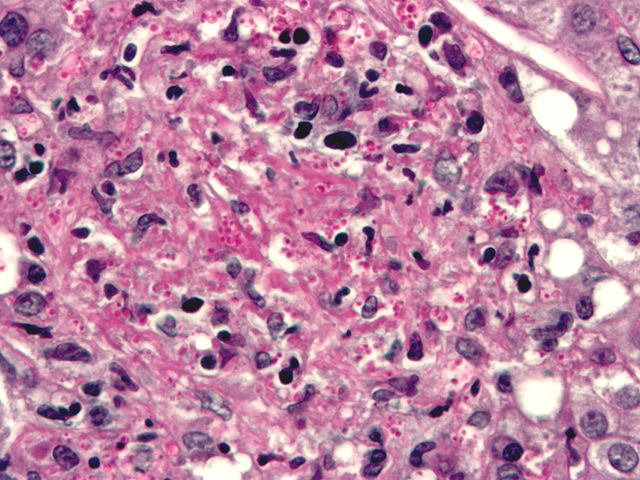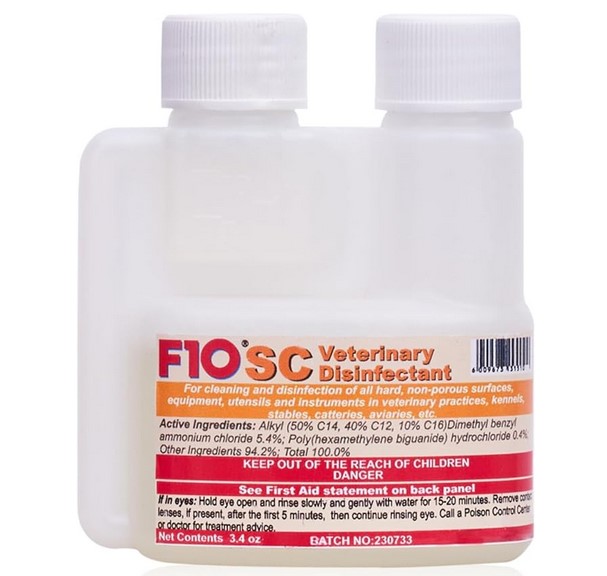
A Guide to Histoplasmosis in Dogs
Histoplasmosis, which affects both dogs and humans, is a fungal disease caused by the Histoplasma capsulatum fungus. The fungus is usually ingested by dogs when they eat or inhale contaminated sand or bird feces. Once the dog has consumed the fungus, it enters the intestinal tract, where the disease starts to develop, usually causing problems in the lungs and small intestine.
Symptoms of Histoplasmosis in Dogs
Weight loss, lack of appetite, diarrhea when straining and depression are the most common symptoms in dogs, with other potential signs being:
- Difficulty breathing together with harsh lung sounds
- Coughing
- Enlarged lymph nodes
- Inability or unwillingness to exercise
- Changes to the eyes and skin
- Lameness
- Moist mucous membranes and pale gums
- Fever of up to 40C or 104.0F
- Enlarged spleen and liver
- Yellowing of the gums and other body tissues (jaundice or icterus)
The main cause for this disease in dogs is the ingestion of the Histoplasma capsulatum fungus, which the dog might inhale when he is digging or scratching in contaminated soil, or from bird droppings, as well as bat or poultry feces.
Treatment of Histoplasmosis in Dogs
Veterinarians usually treat dogs suffering from Histoplasmosis with medications on an outpatient basis. If the intestinal disorder is so severe that your dog is unable to absorb nutrients properly, (malabsorption) then inpatient treatment will be recommended, and your veterinarian will administer drugs, fluids, and nutrients intravenously, until your dog’s health has improved.
Once he has been treated, the amount of activity your dog has should be limited to give him a chance to recover fully. This can be achieved by giving your dog cage rest or keeping him in an enclosed environment to restrict his movement and keep his stress levels down, which would only lengthen his recovery time. A second course of treatment might be needed should the condition recur.
Diagnosing Histoplasmosis in Dogs
For the diagnosis, a urinalysis, a complete blood count, and a chemical blood profile will be conducted. Although these tests might confirm the existence of histoplasmosis antibodies, it only means that your dog has indeed been exposed to the fungus, not that your dog has contracted the disease because of exposure. Further tests will be conducted to establish the actual state of the disease.
For your vet to be able to give your dog the correct treatment, he or she will have to differentiate the histoplasmosis symptoms from those of other disease conditions. Symptoms of weight loss and severe diarrhea can be an indication of a number of illnesses in a dog, such as eosinophilic enteritis, lymphocytic plasmacytic enteritis, chronic parasitism, exocrine pancreatic insufficiency as well as lymphoma.
Areas and Dog Breeds Affected by Histoplasmosis
Histoplasmosis occurs all over the world, and there is no known breed that is more affected than another. Young adult, large-breed dogs seem to have a slighter risk of developing the symptoms, but the exact reason for this is not known. Dogs who are already ill and those who are undernourished or have a compromised immune system are at greater risk of contracting the disease than healthy animals.

